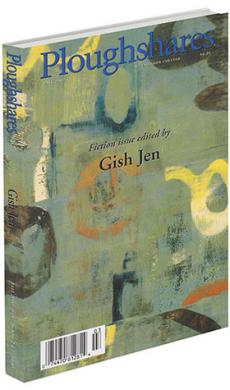Introduction
A certain college professor used to say that one sits down to write ABC, but in the process discovers — ah! — DEF! He was talking about writing nonfiction, but there is DEF in fiction, too. We discover through writing that we know more than we know — hopefully, if we’re writing with honesty and without gimmickry, with respect for tradition but distaste for convention — much more. And we discover that much of what we know is not knowledge, exactly; that much is not described by fact; that in fact, facts miss life’s essence; and that we take unreasonable satisfaction in the capture of that essence. Why do we care so about the heft of things? About patterns, rhythms, certain chill pleasures? Why do we care what it means to reach; how it feels to be mortal; what triumph of sorts is to be found in words? We just do. The grimmest truth is lightened by accuracy of expression, and yet fiction is more than accurate. It is wildly intimate, the human mind at large. We are differently human, in this age of techno-wow, than
we were in the age of
Beowulf. Never mind the machine in the garden, it’s the computer in the garden we must contend with now, not to say the camera. Screens have infiltrated our dreams, all manner of visuals. All the same, we are passionate, we are brave. We have dragons to slay. We seek to answer death with glory; and we love stories. Why will no doubt be explained, in due time, by clever use of a brain scan. Certain areas of the brain will light up, and a researcher will announce, There! That is the
storius lovicus, which distinguishes human gelatin from that of other creatures. But of course, he or she will have only translated human truth into scientific truth, brilliantly.
I write all this because while editing this issue, I happened to find myself on a panel entitled “What Can We Learn from the Arts that We Can Learn Nowhere Else?” — a subject I would not have thought worth expounding upon. To ask such a question seemed to me to be like asking “What can we learn from children that we can learn nowhere else?” As if there were a point to having children; as if they were an educational experience, like Outward Bound. On the other hand, children are, of course, an education, too. We do learn things from them, as we do from literature. One of the great uses of literature today — often mistaken for its point — is its social use. How should we feel about the use of art as artifact? Much of the panel discussion revolved around this subject. Everyone agreed that real art is not didactic; that it has no express agenda; and that it is not intended to be useful. So, good. But what if it concerns society, as fiction often does? What if it sheds light on what it means to live a particular
life in a particular time and place? What, then? A. E. Housman said, “If I were obliged, not to define poetry, but to name the class of things to which it belongs, I should call it a secretion . . .” Fiction, too, is in large measure secreted; should we be dismayed if the secretion turns out to be medicinal?
A number of the pieces in this issue might be construed to have some medicinal use, and yet they retain a secreted quality, a wild intimacy. They are unpredictable. Not so much incorrect as acorrect, they achieve a balance between form and utterance that I find beautiful. Editor friends tell me that while there has always been bad fiction, multiculturalism has engendered a particularly painful sort of bad fiction, full of the pieties of racism sexism classism — fateful maladies for societies that often prove fatal for fiction. I know what the editors mean. In much of the fiction of claracexism there’s no DEF. The authors end where they begin, with ABC. Their writing is sentimental.
All of the pieces of this issue, in contrast, multicultural or not, potentially medicinal or not, get to DEF, even G. They discover themselves.
In the interests of diversity, I include an essay from the true “other” of the writing community, a critic. I do not agree with everything this particular curmudgeon has to say, but do think he provides valuable food for thought. That we may go on and on, inventing and reinventing, we writers need our amiable irritants: Here’s one.

